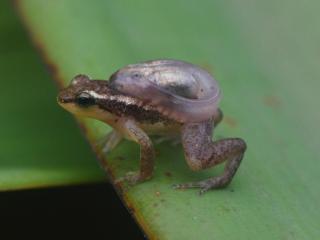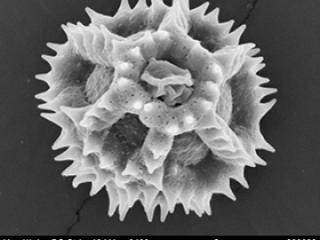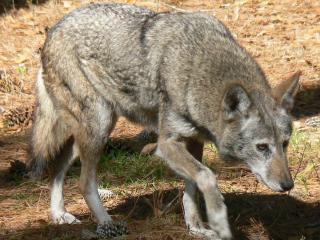Studies in evolution in the Division of Biological Sciences address a range of evolutionary processes at multiple levels of organization and using a wide array of approaches, including genetics, genomics, computation, field studies, advanced imaging, phylogenomics, and behavioral experiments. Research topics include chromosome evolution, evolution of communication, evolution of novel traits, molecular evolution, phylogeography, and community and population dynamics. Research in this area benefits from several campus core research facilities, state-of-the-art laboratories, walk-in acoustic chambers, climate-controlled chambers, and an artificial pond facility.
Faculty
Chromosome evolution and function in plants and fruit fly
Insect communication, behavioral ecology and evolution
Evolution of elaborate parental care behaviors and mating systems in frogs
Staphylococcus aureus stress responses at the host-pathogen interface
Anatomy, ecology and evolutionary biology of vertebrates
Genomic approaches to the study of life history evolution
Our research is broadly classified into three categories: animal communication, behavioral drive, and axes of divergence.
Vertebrate musculoskeletal physiology, form, and function
Systems approaches to the study of aging in ecological settings.
Patterns and consequences of animal sociality
Evolution and neuroethology of acoustic communication systems in insects and amphibians
Determining how transposable elements become epigenetically silenced
Interspecific interactions in community modulation
Evolution of complex traits in laboratory fruit fly populations





























